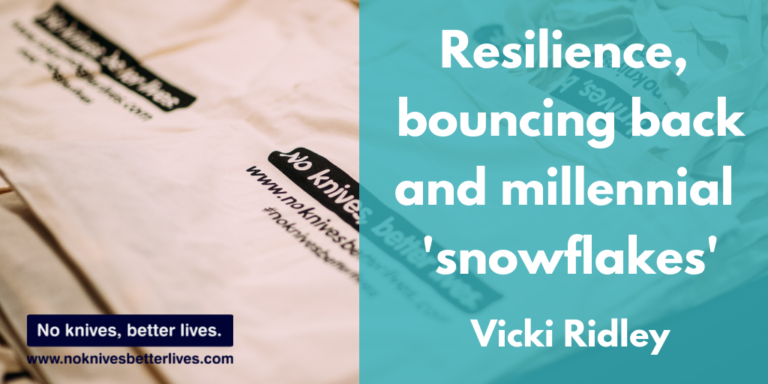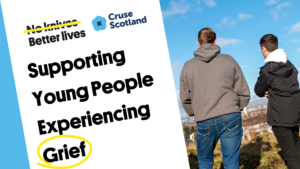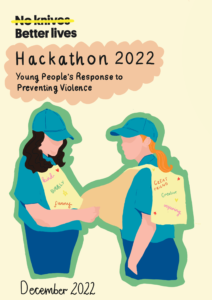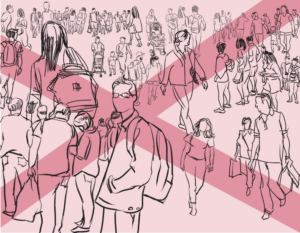Resilience, Bouncing Back and Millennial 'Snowflakes'

The last decade has seen the theory of resilience gain increasing traction as a way of generally explaining why some young people fare better than others. Often seen as a buzzword, the theory of resilience is used to describe how some young people can endure ‘toxic stress,’ caused by living with Adverse Childhood Experiences (ACEs). The ACE agenda is prominent in youth work and educational policy – and resilience fits this narrative perfectly. Even NKBL use resilience to illustrate one of their 4 ‘R’s of prevention work.
Whilst the theory of resilience may come across as pseudo-scientific i.e. the notion of toxic stress in particular, it is massively popular. Criticising resilience therefore is not the done thing. However, some academics and practitioners are beginning to argue against it, claiming that any discourse that places failure at the door of the individual is deeply neo-liberal. This is especially so, when society is increasingly riven with socio-economic disadvantages for the young. Only the resilient can really ever succeed. It is therefore the young person’s personal failure if they do not bounce back from adversity. This lets society off the hook somewhat. Systemic conversations about big societal problems, say a buoyant economy or a fair deal for young people entering the employment market, are eclipsed by the need for individuals to have a ‘can do’ attitude. It is essentially blame shifting. The message is fix yourself and the wider social concerns will somehow take care of themselves.
Take this further and alongside other popular pseudo-scientific discourses, the notion of ‘grit’ and the insidious ‘growth mindset’ all gives credence to the idea of the millennial ‘snowflake.’ When we promote these discourses we assume that the worst thing in the world is to quit. But why? Sometimes quitting is a perfectly legitimate option. Why struggle in a world weighted towards the baby boomers anyway?
And yet, despite these criticisms, resilience remains a powerful force for good. I believe that this is for several reasons. Firstly, it has created a common language for practitioners now comfortable talking about resilience and the associative risk and protective factors. We understand the same jargon whether we are police officers, youth workers, social workers or youth justice workers – something that was as unworkable as it was unthinkable fifteen years ago. Secondly, it has brought focus to discussions about young people placing them at the centre of discussions about their fate and future. This enhances a youth-centric ‘rights based’ approach. And thirdly, it legitimises the practitioner role with the belief that an intervention from a pro-social adult can make all the difference to a young person’s life. This kind of feedback can make all the difference to how you feel about your worth and your work.
So, whilst resilience places a focus on the individual and it rather lets our brittle social economy off the hook, overall it has helped frame the debate about what constitutes reducing risks and joint working practices.
What do you think?
Keep chatting about resilience at the upcoming NKBL Network event on Tuesday 12th March. Book your place here: https://www.eventbrite.co.uk/e/nkbl-network-event-resilience-reassurance-tickets-54702011188




